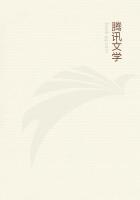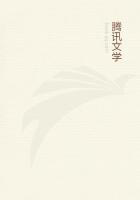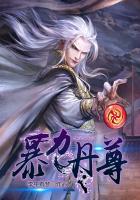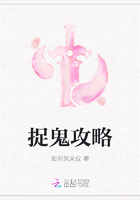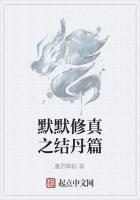These last are something positive, but yet they do not constitute the crime as such; it is only the negative element, such as mercilessness, etc. that makes the action a crime. “We know that whatever exists, regarded in itself and without taking anything else into consideration, contains a perfection which extends as widely as the essence of the thing itself extends, for the essence is in no way different therefrom." - "Because then,” we find in the thirty-second letter (pp. 541, 543), “God does not regard things abstractly, or form general definitions,” (of what the thing ought to be) “and no more reality is required of things than the Divine understanding and power has given and actually meted out to them; therefore it clearly follows that such privation exists only and solely in respect to our understanding, but not in respect to God;” for God is absolutely real. It is all very well to say this, but it does not meet the case. For in this way God and the respect to our understanding are different. Where is their unity? How is this to be conceived? Spinoza continues in the thirty-sixth letter: “Although the works of the righteous (i.e., of those who have a clear idea of God, to which they direct all their actions and even their thoughts), and” also the works “of the wicked (i.e., of those who have no idea of God, but only ideas of earthly things," - individual, personal interests and opinions, - "by which their actions and thoughts are directed), and all whatsoever exists, necessarily proceed from God's eternal laws and counsels, and perpetually depend on God, they are yet not distinguished from one another in degree, but in essence; for although a mouse as well as an angel depends on God, and sorrow as well as joy, yet a mouse cannot be a kind of angel, and sorrow cannot be a kind of joy," - they are different in essence.
There is therefore no ground for the objection that Spinoza's philosophy gives the death-blow to morality; we even gain from it the great result that all that is sensuous is mere limitation, and that there is only one true substance, and that human liberty consists in keeping in view this one substance, and in regulating all our conduct in accordance with the mind and will of the Eternal One. But in this philosophy it may with justice be objected that God is conceived only as Substance, and not as Spirit, as concrete. The independence of the human soul is therein also denied, while in the Christian religion every individual appears as determined to salvation. Here, on the contrary, the individual spirit is only a mode, an accident, but not anything substantial. This brings us to a general criticism of the philosophy of Spinoza, in the course of which we shall consider it from three different points of view.
In the first place Spinozism is asserted to be Atheism - by Jacobi, for instance (Werke, Vol. IV.
Section I, p. 216) - because in it no distinction is drawn between God and the world; it makes nature the real God, or lowers God to the level of nature, so that God disappears and only nature is established. But it is not so much God and nature that Spinoza sets up in mutual opposition, as thought and extension; and God is unity, not One made up of two, but absolute Substance, in which has really disappeared the limitation of the subjectivity of thought and nature. Those who speak against Spinoza do so as if it were on God's account that they were interested; but what these opponents are really concerned about is not God, but the finite - themselves. The relationship between God and the finite, to which we belong, may be represented in three different ways: firstly, only the finite exists, and in this way we alone exist, but God does not exist - this is atheism; the finite is here taken absolutely, and is accordingly the substantial. Or, in the second place, God alone exists; the finite has no reality, it is only phenomena, appearance. To say, in the third place, that God exists and we also exist is a false synthetic union, all amicable compromise. It is the popular view of the matter, that the one side has as much substantiality as the other; God is honoured and supreme, but finite things also have Being to exactly the same extent. Reason cannot remain satisfied with this "also,” with indifference like this. The philosophic requisite is therefore to apprehend the unity of these differences in such a way that difference is not let slip, but proceeds eternally from substance, without being, petrified into dualism. Spinoza is raised above this dualism; religion is so also, if we turn its popular conceptions into thoughts. The atheism of the first attitude - when men set up as ultimate the arbitrariness of the will, their own vanity, the finite things of nature, and the world dwells for ever in the mind - is not the standpoint of Spinoza, for whom God is the one and only substance, the world on the contrary being merely an affection or mode of this substance. In the respect that Spinoza does not distinguish God from the world, the finite, it is therefore correct to term his theory atheism, for his words are these: Nature, the human mind, the individual, are God revealed under particular forms. It has been already remarked (pp.


